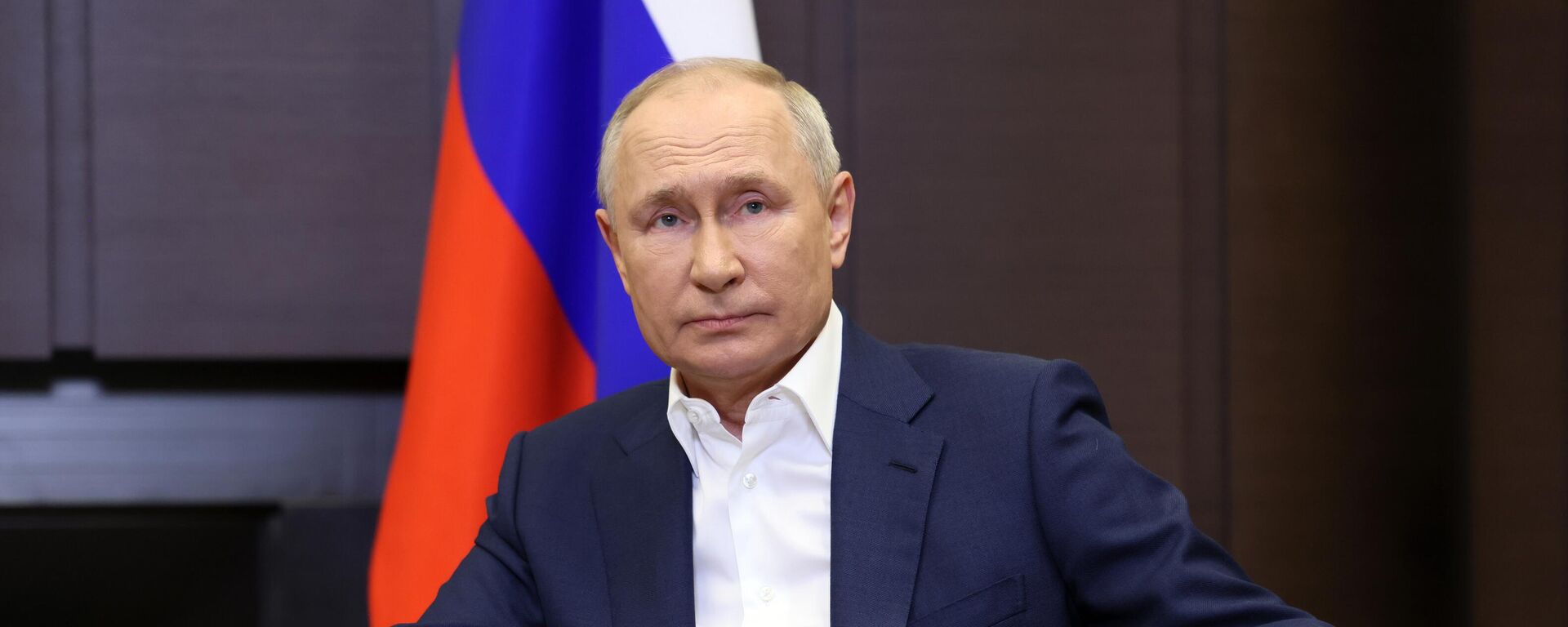https://sputnikglobe.com/20240412/war-new-fiscal-policy-rules-and-austerity-to-turn-eu-into-us-1117880276.html
War, New Fiscal Policy Rules and Austerity to Turn EU Into US
War, New Fiscal Policy Rules and Austerity to Turn EU Into US
Sputnik International
Austerity, strict fiscal policy rules and a preference for guns over butter will turn the EU into something that looks a lot more like the US.
2024-04-12T03:48+0000
2024-04-12T03:48+0000
2024-04-12T03:48+0000
analysis
linwood tauheed
italy
france
ukraine
european union (eu)
nato
naked capitalism
austerity measures
austerity
https://cdn1.img.sputnikglobe.com/img/07e8/02/1a/1116985790_0:215:3072:1943_1920x0_80_0_0_b5e0b9b520ca58a5d437450b5384e252.jpg
Earlier this week, Finnish Finance Minister Riikka Purra told a local newspaper that cuts will need to be made to pensions in the country as it attempts to cut an additional €3 billion from its budget. It was the latest in a string of European countries telling its citizens to prepare for belt-tightening even as the EU approved €50 billion in aid for Ukraine.The austerity measures by the Finnish government come as it is increasing its military budget to be in line with NATO’s requirement that member nations spend at least 2% of their GDP on defense.It also comes as New Fiscal Rules in Europe are set to constrain how EU member states can handle their debt, a move almost assured to lead to more austerity, as some of the countries with the highest debt-to-GDP ratios, including France, Italy and Poland, work to restock their military supplies after sending them to Ukraine.“High-debt countries like Italy, France, Spain, Netherlands, Poland, and Belgium face the biggest consolidation demands,” explained chief economist and head of the Economics Department of the Austrian Trade Unions Confederation Helene Schuberth, in an interview with independent media outlet Naked Capitalism. “For instance, Italy has to reduce its fiscal deficit by 1% of GDP per year. France has to consolidate nearly as much.”Europe, in contrast to the US, has had a relatively robust social safety net. Universal healthcare and education is the standard across the continent. Pensions and unions are common as are housing subsidies for the poor.Compounding matters is what has been called an “energy crisis” in Europe. Western sanctions on Russia, have forced the EU to turn to the US for its supplies, in addition to buying Russian gas through a third party.Russia has “for decades been a very well-received and inexpensive trading partner with Europe. Now, Europe is prevented from engaging in that trade,” Dr. Linwood Tauheed, an associate professor of economics at the University of Missouri told Sputnik’s The Critical Hour on Thursday.All of this, of course, works to the benefit of the United States. Not only has Europe been forced to buy expensive gas, but the rising cost of energy has caused de-industrialization across the continent, particularly in Germany, which was previously a global economic and industrial powerhouse. Much of that industrialization has moved across the pond to the US, where energy and labor remain relatively cheap.Additionally, the new military purchases are almost certainly going to benefit US weapon manufacturers.In the last quarter of 2023, Europe’s economy saw no growth while the US grew only 2.5% throughout the year, a figure Tauheed argues is partially the result of Europe’s deindustrialization. “So we have one entity – the US – that is basically sucking the blood out of the other entity, which is the EU,” Tauheed explained.However, Europe’s austerity measures are unlikely to help those countries balance their budget. The decreased social spending by the government decreases consumer spending and ultimately those countries’ GDP. That will, in turn, lead to more austerity.After the financial crisis in 2008, Europe responded with austerity measures while the US implemented a financial bailout. The countries with the strictest austerity measures showed the slowest signs of recovery. In addition, they also saw an increase in suicides and a decrease in healthcare effectiveness. They also failed to address their debts and Italy’s banks saw cuts in their Moody credit rating as a result.“The ultimate goal of this process is to dismantle welfare programs, to dismantle free health care, free education, housing subsidies and so forth in the EU,” Tauheed said.“This is going as planned, to have the EU eliminate those [programs] so that it can be said that there are no better alternatives than for-profit healthcare and expensive education since the EU couldn’t sustain [it],” Tauheed speculated.And with that, the EU will move closer to the US, not only economically and politically, but in appearance. Europe’s leaders are once again faced with the question that has haunted world leaders since the dawn of civilization in one form or another: guns or butter?After generations of the highest standards of living in the world, Europe is increasingly moving towards guns, while its citizens struggle to buy butter.
https://sputnikglobe.com/20231011/eu-economy-stagnating-as-bloc-tries-to-abandon-russian-energy---putin-1114095156.html
https://sputnikglobe.com/20240124/strike-movement-spreads-across-europe-amid-austerity-and-economic-slump-1116367031.html
italy
france
ukraine
Sputnik International
feedback@sputniknews.com
+74956456601
MIA „Rossiya Segodnya“
2024
News
en_EN
Sputnik International
feedback@sputniknews.com
+74956456601
MIA „Rossiya Segodnya“
Sputnik International
feedback@sputniknews.com
+74956456601
MIA „Rossiya Segodnya“
austerity, consequences of neoliberal policies, sanctions on russia, energy crisis in europe, new eu fiscal policy, the destruction of the welfare state
austerity, consequences of neoliberal policies, sanctions on russia, energy crisis in europe, new eu fiscal policy, the destruction of the welfare state
War, New Fiscal Policy Rules and Austerity to Turn EU Into US
“Every gun that is made, every warship launched, every rocket fired signifies, in the final sense, a theft from those who hunger and are not fed, those who are cold and are not clothed. This world in arms is not spending money alone. It is spending the sweat of its laborers, the genius of its scientists, the hopes of its children.” - Eisenhower
Earlier this week, Finnish Finance Minister Riikka Purra told a local newspaper that cuts will need to be made to pensions in the country as it attempts to cut an additional €3 billion from its budget. It was the latest in a string of European countries telling its citizens to prepare for belt-tightening even as the EU approved €50 billion in aid for Ukraine.
The austerity measures by the Finnish government come as it is increasing its military budget to be in line with NATO’s requirement that member nations spend at least 2% of their GDP on defense.
It also comes as New Fiscal Rules in Europe are set to constrain how EU member states can handle their debt, a move almost assured to lead to more austerity, as some of the countries with the highest debt-to-GDP ratios, including France, Italy and Poland, work to restock their military supplies after sending them to Ukraine.
“
High-debt countries like Italy, France, Spain, Netherlands, Poland, and Belgium face the biggest consolidation demands,” explained chief economist and head of the Economics Department of the Austrian Trade Unions Confederation Helene Schuberth, in an interview with independent media
outlet Naked Capitalism.
“For instance, Italy has to reduce its fiscal deficit by 1% of GDP per year. France has to consolidate nearly as much.”
11 October 2023, 12:28 GMT
Europe, in contrast to the US, has had a relatively robust social safety net. Universal healthcare and education is the standard across the continent. Pensions and unions are common as are housing subsidies for the poor.
Compounding matters is what has been called an “energy crisis” in Europe. Western sanctions on Russia, have forced the EU to turn to the US for its supplies, in addition to buying Russian gas through a third party.
Russia has “
for decades been a very well-received and inexpensive trading partner with Europe. Now, Europe is prevented from engaging in that trade,” Dr. Linwood Tauheed, an associate professor of economics at the University of Missouri
told Sputnik’s The Critical Hour on Thursday.
All of this, of course, works to the benefit of the United States. Not only has Europe been forced to buy
expensive gas, but the rising cost of energy has caused de-industrialization across the continent, particularly in Germany, which was previously a global economic and industrial powerhouse. Much of that industrialization has moved across the pond to the US, where energy and labor remain relatively cheap.
Additionally, the new military purchases are almost certainly going to benefit US weapon manufacturers.
“That military spending increase comes into the US, mainly [from] US weapons manufacturers, and therefore you get growth in the US,” Tauheed explained. “So the US gets a bump because of increased military hardware spending and the EU goes into austerity because of cuts to pensions and free education and healthcare and so forth.”
In the last quarter of 2023, Europe’s economy saw no growth while the US grew only 2.5% throughout the year, a figure Tauheed argues is partially the result of Europe’s deindustrialization. “So we have one entity – the US – that is basically sucking the blood out of the other entity, which is the EU,” Tauheed explained.
However, Europe’s austerity measures are unlikely to help those countries balance their budget. The decreased social spending by the government decreases consumer spending and ultimately those countries’ GDP. That will, in turn, lead to more austerity.

24 January 2024, 19:39 GMT
After the financial crisis in 2008, Europe responded with austerity measures while the US implemented a financial bailout. The countries with the strictest austerity measures showed the slowest signs of recovery. In addition, they also saw an increase in suicides and a decrease in healthcare effectiveness. They also failed to address their debts and Italy’s banks saw cuts in their Moody credit rating as a result.
“The ultimate goal of this process is to dismantle welfare programs, to dismantle free health care, free education, housing subsidies and so forth in the EU,” Tauheed said.
“This is going as planned, to have the EU eliminate those [programs] so that it can be said that there are no better alternatives than for-profit healthcare and expensive education since the EU couldn’t sustain [it],” Tauheed speculated.
And with that, the EU will move closer to the US, not only economically and politically, but in appearance. Europe’s leaders are once again faced with the question that has haunted world leaders since the dawn of civilization in one form or another: guns or butter?
After generations of the highest standards of living in the world, Europe is increasingly moving towards guns, while its citizens struggle to buy butter.




